Women Leaders Speak Out on Violence Against Women in Politics in the Pacific Islands
31st March, 2021
[March 31, 2021] – Countries in the Pacific Islands have some of the lowest rates of women’s political participation and highest levels of gender-based violence in the world. Historically, women have been excluded from political structures and processes, which are dominated by patriarchal and traditional tribal norms. While the political environment is changing in Fiji, Papua New Guinea, and the Solomon Islands, violence against women continues to affect women’s public participation and deprives them of achieving full political rights.
With support from USAID, this month NDI convened nearly 50 politically active women—including government ministers, members of parliament, church representatives, community leaders, and representatives from civil society organizations—over two sessions in Fiji and the Solomon Islands to discuss eliminating violence against women in politics (VAW-P) in the Pacific Island Countries. NDI also discussed findings from its research report on VAW-P in Fiji, Papua New Guinea, and the Solomon Islands at these events.
The issue has become even more crucial during the COVID-19 pandemic.
“The effects of COVID-19 have exacerbated the already unequal differences between men and women. Health concerns and the pandemic’s economic impact have profoundly affected women as they look around and try to ensure that there is food on the table for their children and families,” said Susan Grey, the Executive Director of Fiji-based femLINKpacific, adding, “Their political security, aspirations, and ambitions have become the least of their human security priorities.”
Participants discussed how socio-cultural and institutional factors influence and create barriers to women’s political participation. Dr. Ifereimi Waqainabete, Fiji Minister for Health and Medical Services, noted, “Traditional patriarchal attitudes are embedded in gender inequality… men must see women as leaders and movers and shakers in society.“
The sessions offered women the opportunity to come together and share personal experiences of their involvement in politics. In her opening remarks, Solomon Islands Minister of Women, Youth, and Children’s Affairs Freda Tuki reflected on the hardships she faced during her campaign: “It is more difficult winning the hearts of the public during a campaign than it is holding leadership at the national level.” Such opportunities for open and honest discussion among politically active women help highlight the issue of VAW-P as a unique challenge and shed light on the oft underreported incidences of VAW-P.
Though far from the only obstacle confronting women seeking greater political rights, violence against women poses a prononunced threat to democracy. Open dialogue on VAW-P offers women the understanding that they are not alone in the challenges they face. Ms. Seini Nabou, General-Secretary of the National Federation Party (NFP) in Fiji aptly noted, “We may have our fair share of differences in politics. But, we share the same challenges when it comes to the struggles faced by women in politics.”
While women in the Pacific Islands have different experiences, levels of success, and political paths, many experience violence because of their activism. Though physical assault is less common, many politically active women are victims of character assassination and libelous accusations, which tend to be intensely personal and often sexual in nature. This threat deters many women from participating in politics. And the fear of being ostracized or viewed as a “victim” and a lack of faith in the justice system—fueled by impunity—prevents most women from reporting violence the they experience. NDI is working to change that.
To help NDI introduced to participants its Think10 safety planning tool. Developed as part of NDI’s #NotTheCost campaign to end violence against women in politics, this unique tool enables women to assess their personal and professional vulnerabilities, and take informed steps to enhance their safety in political activities.
Despite ongoing efforts to address gender-based violence in the Pacific Islands, data and discussion on VAW-P remain limited. Combating VAW-P requires concerted efforts of a multitude of stakeholders, including election management bodies, political parties, police and security forces, and civil society organizations, particularly women’s organizations. With a greater understanding of VAW-P, politically active women will be better equipped to join together to raise awareness on the barriers in political participation and contribute to advocacy efforts toward the equal and safe political participation of women in the Pacific region.

